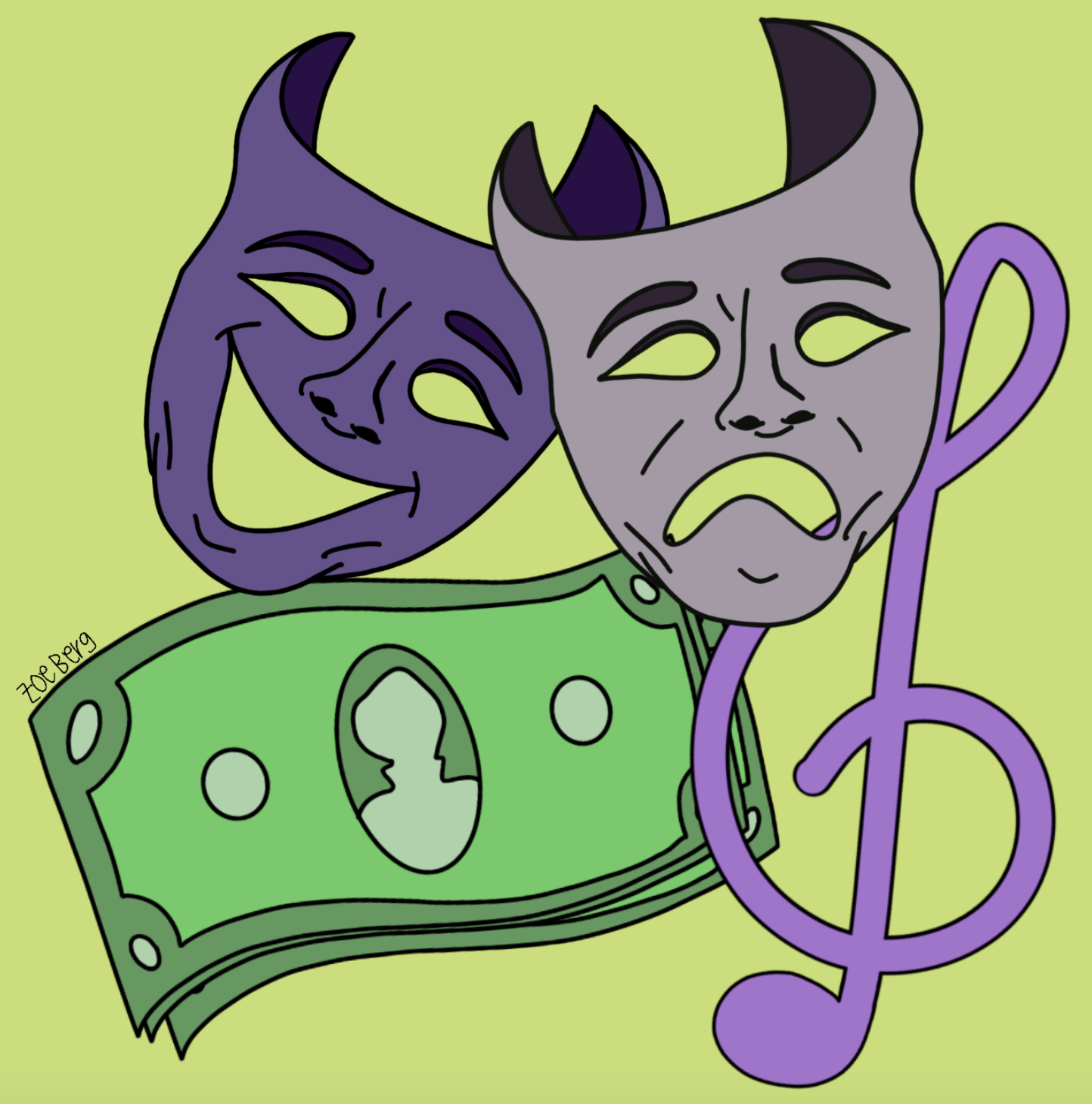
Zoe Berg, Photo Editor
On Monday, the office of Connecticut Gov. Ned Lamont announced that 154 nonprofit arts organizations in the state would receive a total of $9 million in state grants.
The money will come from the COVID Relief Fund for the Arts, a fund administered by the Connecticut Department of Economic and Community Development, or DECD. Eleven of the recipient organizations are based in New Haven. According to Lamont’s press release, the funding is intended to assist organizations such as performing arts centers, schools of the arts and performing groups — nonprofits that depend on the grants to survive in the wake of pandemic-related restrictions.
“The wonderful thing about [the grants] is it was actually very quick,” said Rebecca Goodheart, the producing artistic director of the Elm Shakespeare Company.
The Elm Shakespeare Company is a 25-year-old professional theater company most widely known for its annual Shakespeare in the Park event in East Rock. The company received a grant of $45,200.
According to Goodheart, usually grants of this size — and government grants in general — are “incredibly labor-intensive and take a very long time.” For Goodheart, this grant was different because it came from the state and was designed specifically for relief in response to the pandemic.
Nonprofit organizations applied to receive the grants in early November. According to Mandi Jackson GRD ’07, the executive director of arts nonprofit Music Haven, they had about 10 days to complete the process. The application asked for information about the organization’s activities, their income from March 1 to Nov. 1 and a submission of official documentation to the state’s Office of the Arts about their nonprofit status. The state also asked that the organizations try to rehire any staff terminated in relation to COVID-19 budget cuts.
Music Haven, an organization that offers young people tuition-free music education, is another one of the 11 New Haven-based nonprofits to receive funding. It received a grant of $101,100.
Jackson said that she thought the application process was designed to get a sense of how the pandemic had impacted their organization financially and projections for the upcoming year. The amount Music Haven received from the COVID Relief Fund for the Arts, Jackson said, equaled the funds that Music Haven expected to receive from the state in a typical year. However, the original state-allocated money had been rescinded earlier this year due to the pandemic.
According to Goodheart, the nonprofits could not ask for a particular sum of money. The state determined their need based on the application documents.
Alice Hummel, the executive director of the New Haven Chorale — a professionally conducted volunteer chorus — told the News that one of the questions in the grant application was whether or not the nonprofit had full-time personnel. Qualification for the state grant required that the nonprofit either have full-time personnel, or that their combined staff equaled the hours for a full-time employee. Hummel said that the New Haven Chorale, which received a $30,200 grant, appealed for funding based on their projected losses for the year.
“Our operated loss is projected to be something close to $50,000, depending upon which scenario plays out,” Hummel told the News.
Linda Waldman, president of the New Haven Chorale, explained that its costs come from “salaries, operating expenses and administrative expenses.” While most of the singers sing for free, Waldman said that instrumentalists are generally paid by the chorale. She added that the organization is still paying for the nonprofit’s performers and staff.
The New Haven Chorale has attempted to adapt to the pandemic by funding a new project — virtual videos. The chorale has produced four videos so far. Two are on YouTube already, and two will be released as part of the organization’s holiday program in a few weeks.
According to Waldman, the process of producing these videos was “incredibly labor extensive.” Edward Bolkovac, the music director of the New Haven Chorale, also told the News that they experienced difficulties with their recording technology, which wasn’t advanced enough to properly capture the multiple voices in the chorus.
In addition, Waldman said there were no funds coming in from ticket revenue. She said the downturn in the economy hampered the money the chorale could get from sponsorships from corporations and businesses, since these organizations were also having difficulties with their own finances.
Shubert Theatre, a theater located on College Street, received one of the highest grants — $118,800.
“I think it will be a challenge to do work with a small staff and to provide training to the staff that exist to do things that they haven’t done before,” said Carla Sullivan, the vice president of external relations for the Shubert.
Sullivan said the theater is considering using some of the grant money for technology and production training. She said this would be a novel undertaking for the theater, which operated as an events venue and hosted shows before the pandemic. Because the grant isn’t coming from a particular sponsor, Sullivan said the theater could freely decide how to use the money.
Sullivan said she found the grant less than they anticipated, but still “very generous.”
“[The grant] certainly doesn’t replace all the ticket revenue we have lost, but it helps us end our fiscal year in a more positive position with the funding,” Sullivan told the News.
Out of New Haven’s qualifying arts nonprofits, the Long Wharf Theatre received the most funding at $551,400.
Gamze Kazakoglu | gamze.kazakoglu@yale.edu
Correction, Dec. 8: This article originally stated that the New Haven Symphony received the most funding at $219,300. It has been updated to reflect that the Long Wharf Theatre received the most funding at $551,400.
Interested in getting more news about New Haven? Join our newsletter!







